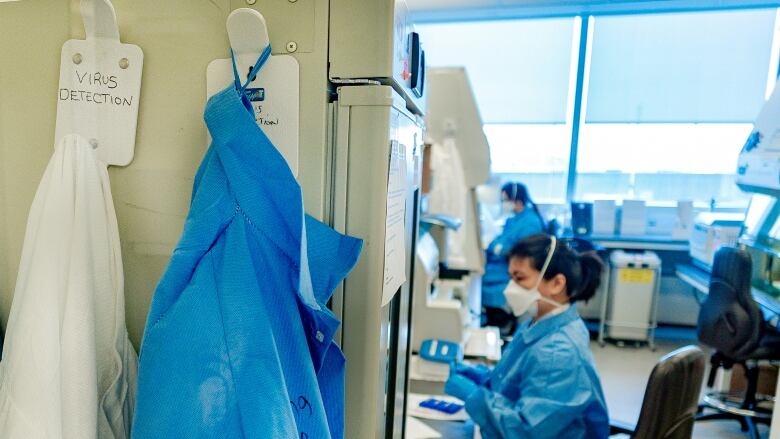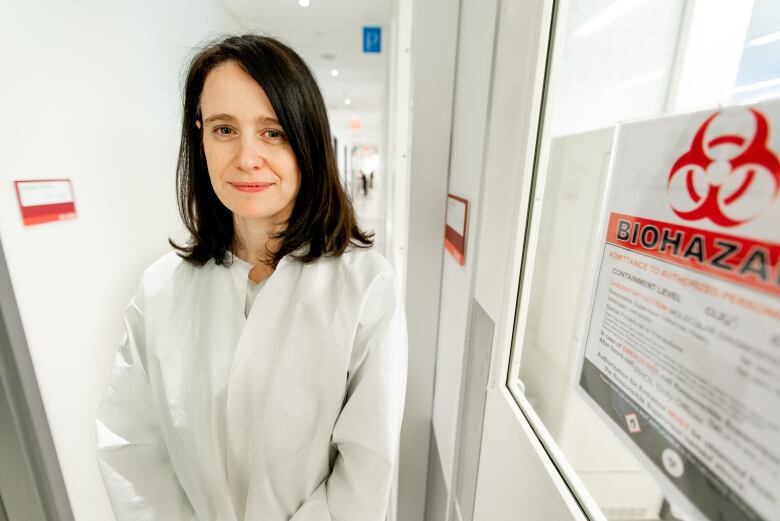Ontario conducting far fewer COVID-19 tests than promised as cases keep climbing
Province had promised 5,000 tests by end of March but had done only 3,237 as of Wednesday

The number of COVID-19 tests completed in Ontario each day has dwindled steadily over the past week, raising concerns that the province is missing cases of the illness and failing to capture the true spread of the novelcoronavirus.
Data from the Ministry of Health shows there were just 2,568 new test results provided on Tuesday. That's roughly half the daily target of 5,000 that the government promised to achieve in late March, and far short of the 19,000 tests per day promised for the third week of April.
The slower-than-promised pace continued Wednesday, with Ontario announcing 3,237 new test results.
To best combat the spread of COVID-19, experts in public health and epidemiology say Ontario needs to be testing more rather than less.
"I am a little bit concerned that we don't have a very good handle of what's happening with this epidemic right now,"Dr. Jeff Kwong, a professor of public health and family medicine at the University of Toronto, told CBC News.
"If we can identify more of the cases that are in the community it will help give us a better idea of what's going on."
Ontariois testing a smaller portion of its population than anywhere else in Canada. Quebec, B.C. and Alberta are each testingat double the province'srate.
The reason for theshortfall appears to be that Ontario continues to restrictwho gets tested by recommending against testing people who have not recently travelled internationally, even if they have symptoms of COVID-19.
"It's possible that there are more people out there who have this infection that we're not aware of, and they may be spreading it on to their contacts," said Kwong.
Ontario is giving priority for testing to hospital patients, nursing-home residents and health-care workers. Despite that,Public Health Ontario laboratories struggled to keep up with the volume of tests in March, leading to a backlog that peaked at nearly 11,000 people waiting for their results.
That backlog is now cleared with help from private labs, and officialsincluding the health minister and the province's associate medical officer of healthhave said the public and private labs together can now process as many as 13,000 tests per day.

But Ontario has not tested anywhere near that many people in a single day yet,and there are no signs of when it will ramp up testing to use the full lab capacity.
One sign of how narrowly Ontario's testing is focused on the most likely cases: nearly 15 per cent of the test results announced on Tuesday were positive. Quebec's confirmed cases are running at about nineper cent of all tests, and in B.C. it's less than threeper cent.
Ontario Health Minister Christine Elliott said she will soon announce plans for more testing of the most vulnerable populations, including residents of nursing and retirement homes.
"We have developed a strategy in order to be able to increase that testing there," she told a news conference Tuesday.
Provincial officials have been working on new guidelines for testing that will make the most difference on health-care outcomes, saidDr. Vanessa Allen, chief of medical microbiology for Public Health Ontario.
"We want to be able to make the largest impact with the resources we have," Allen said in an interview with CBC News.
"We have a responsibility to ramp up capacity so that we can get better tools for our response and a better picture of the epidemic."













_(720p).jpg)


 OFFICIAL HD MUSIC VIDEO.jpg)
.jpg)



























































































